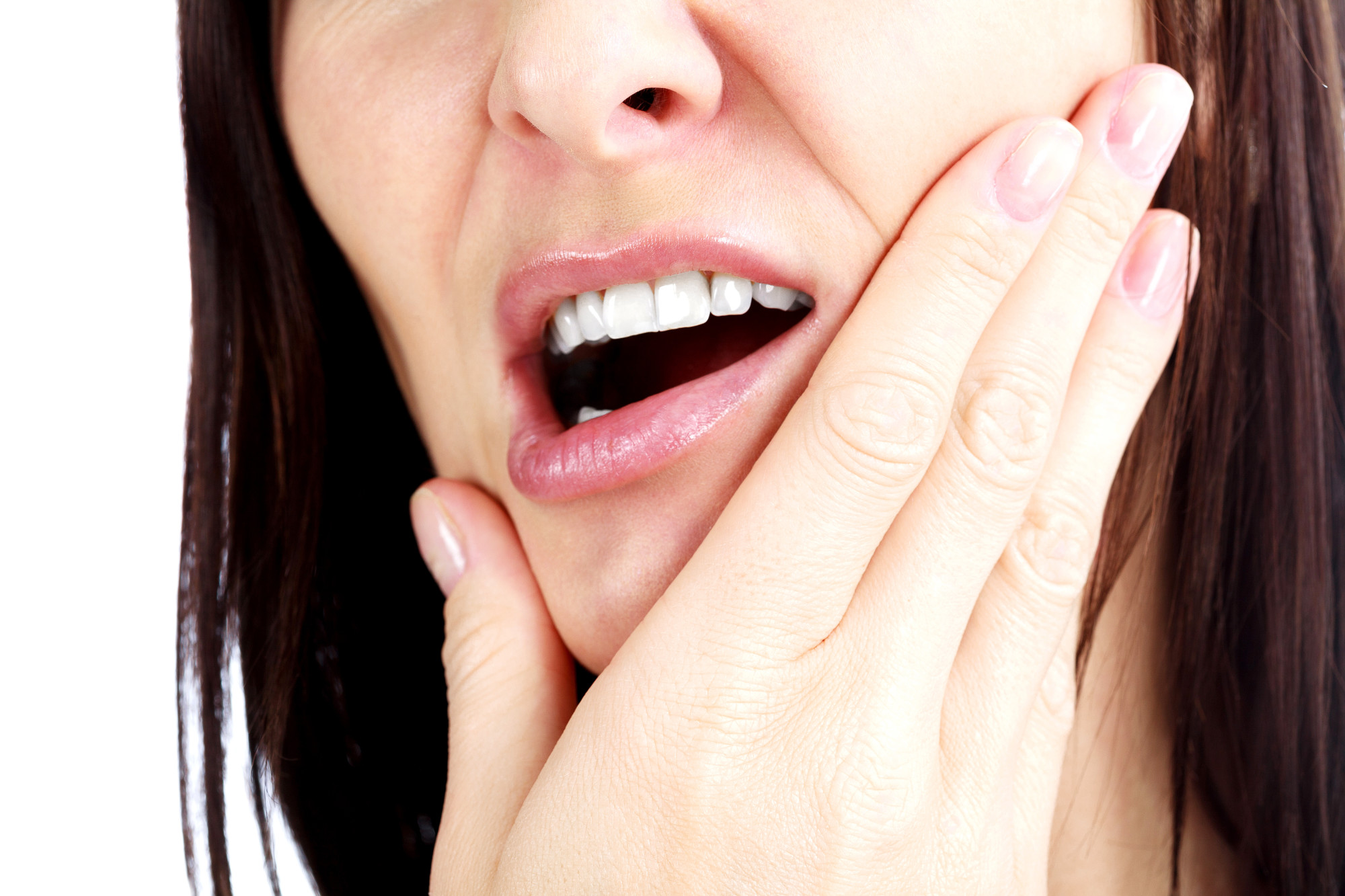Have you ever been chewing food and felt that familiar pressure in your jaw? Maybe you also noticed a slight popping or cracking sound? If so, then you’ve experienced jaw pop.
Coworkers and family members always give you weird looks when you crack your jaw. You are tired of the shame and want to discover the real cause of this odd sensation. The good thing is you found this article and can put an end to the mystery.
Here are the five most common reasons your jaw pops when chewing.
1. Jaw Joint Displacement
Jaw joint displacement occurs when the lower jaw shifts out of its normal position and is frequently associated with a popping sound. This sound is caused by fluid or air bubbles, creating a popping sensation when the jaw joint shifts.
This happens when the condyle and zygomatic arch calcify, and the two parts can’t slide freely as they normally would. This causes the jaw joint to temporarily be distorted. Therefore, it can lead to a clicking noise.
Chewing can cause extra pressure, lateral torsion, and ultimately a sudden displacement of the joint. This results in a popping sound.
If jaw joint displacement becomes a chronic problem, physical therapy or orthodontics might be a good solution, as this will help ease the pressure of the jaw joint and can ultimately help stop the popping.
2. A Temporomandibular Joint Disorder (TMJ)
When we hear our jaw pop, it can be a sign of something serious. It’s often the telltale sign of inflammation of the jaw joint, known as temporomandibular joint disorder (TMJ).
TMJ is an umbrella term that describes a range of conditions, including strained muscles in the jaw, various underlying medical conditions, and degenerative joint disease. If left untreated, inflammation of the jaw joint can cause significant pain and discomfort, difficulty eating, and a limited range of jaw motion.
That’s also why the act of chewing can cause your jaw to pop. Chewing puts increased stress on the jaw joints, and when the TMJ becomes inflamed, the jaw may become locked and require you to pop it back into place in order for it to function properly.
Learn about TMJ and sleep apnea treatments, as it this important to be aware of the signs of TMJ so that you can get the treatment you need to manage the symptoms.
Taking preventive measures such as avoiding biting hard objects and practicing good mouth hygiene can help prevent TMJ.
3. Trauma to the Joint
The cause of this trauma can be excessive and forceful movements of the jaw or an underlying medical condition such as arthritis. When a joint is damaged, the ligaments and tendons become loose and the resulting movement causes the two bones to “pop” into another position.
In addition, air or substances like fluid or saliva become trapped between the two bones of the joint, resulting in a popping sound. Trauma to the jaw joint is the most common cause of the popping sound and can be identified by an audiologist or dentist.
Other conditions, such as chronic muscle tension and joint inflammation, can also cause the popping noise and should be treated by a specialist.
4. Poor Dental Alignment
When chewing, your jaw pops due to the alignment of the teeth and joints of the jaw. Poor dental alignment is a common explanation, as the misalignment of the upper and lower teeth puts an uneven amount of pressure on the joints of the jaw when it moves during chewing.
Without proper alignment, the joint in your jaw will move in an awkward and uncomfortable way. Poor dental alignment can also cause chronic jaw pain, jaw spasms, headaches, and difficulty chewing, especially when it comes to eating hard or chewy foods.
Treatment to realign the jaw typically involves braces or a retainer to adjust the positioning of the teeth to better fit the joint in the jaw. Treatments like these can alleviate the popping sound and also provide a pathway to long-term relief from further jaw and dental problems.
5. Stress
When one is under chronic stress, they remain in a condensed state. This can create a popping sound as one chew. Moreover, due to the fragility of the bones within the TMJ, a chronic overworking of the muscles can cause the bones to become misaligned. It also resulted in a popping sound.
Muscle tension caused by stress can lead to digestion issues, jaw pain, and jaw popping. Stress can also lead to grinding or clenching of the teeth when eating, which can put extra tension on the jaw muscles and lead to jaw popping.
Grinding or clenching too hard or for too long can damage teeth and cause jaw tension, leading to popping during chewing. Stretching exercises can help to reduce stress and muscle tension to support optimal jaw and teeth health.
In addition, relaxation techniques such as yoga, meditation, and deep breathing can help to reduce stress levels and allow for more relaxed chewing during meals.
Overall, it is important to keep stress in control in order to maintain a healthy jaw and keep the muscles from becoming too tense. Relaxation techniques such as meditation can go a long way in restoring balance and preventing jaw tension.
Uncovering Solutions to Managing Jaw Pops When Chewing
After all, is said and done, it can be concluded that the popping of the jaw when chewing is due to the release of air pockets in the temporomandibular joint. Finally, if your jaw pops when chewing more often than what is considered normal, it is highly recommended to discuss it with a dental professional.
All of the information in this article can help you prevent more serious health problems down the road. Make sure to check out some of our other articles today for more life-improving knowledge.





Be First to Comment